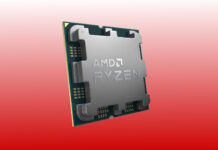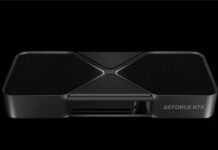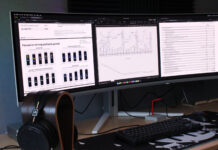Texas Memory Systems (TMS) har informerat oss om att deras Solid-State-system RamSan 620 har slagit nya rekord is SPC-1, det standardiserade prestandatestet som Storage Performance Council står bakom. RamSan 620 nådde 254 994,21 SPC-1 IOPS med en snittåtkomsttid på 0,72ms och slog därmed det tidigare rekordet. De lyckades även nå ett pris/prestanda-förhållande på $1,13 per IOP, nytt rekord det med. Imponerande siffror rakt igenom och vi tror inte det att är någon som på fullaste allvar tror att hårddiskar kan utmana SSD-tekniken för krävande systemplattformar.
Pressmeddelande följer nedan;
Texas Memory Systems Sets SPC-1 Records for Flash Price-Performance and Average Response Time
RamSan-620 delivers leading SPC-1 Results for key performance and value metrics for Flash.
October 27, 2009, Houston, Texas, USA – Texas Memory Systems, maker of the World’s Fastest Storage®, today announced that its RamSan-620 Flash Solid State Disk (SSD) has submitted a record setting SPC-1 Result. The RamSan-620 produced 254,994.21 SPC-1 IOPS with Average Response Time of 0.72 milliseconds all from a 2U rack-mount chassis. The RamSan-620 delivers its performance at a cost of only $1.13 per SPC-1 IOPS. That SPC-1 Price-Performance is better than any competing RAID solution or Flash solution.
Texas Memory Systems is to be congratulated for producing an SPC-1 Result that demonstrates excellent performance with outstanding response time, said Walter E. Baker, administrator of the Storage Performance Council. Their commitment to producing SPC benchmark results to demonstrate performance and price-performance, provides end-users with a clear, unambiguous set of information to assist in purchase decisions.
SPC-1 is a sophisticated performance benchmark for storage subsystems. The benchmark simulates the demands placed upon storage in a typical server-class computer system. SPC-1 provides measurements in support of real-world environments and is designed as a source of comparative storage subsystem performance information.
The Texas Memory Systems RamSan-620 is a general-purpose storage solution that can increase performance for applications and users in a shared storage environment. Each unit can support two to eight Fibre Channel or InfiniBand ports. One or more RamSan-620s can easily be integrated into a mixed storage infrastructure and monitored and managed through a common management framework. Applications such as on-line transaction processing, data warehousing, high-performance data acquisition, batch processing, video editing, as well as Oracle, DB2, and SQL Server databases can all benefit from the RamSan-620.
We are delighted that the RamSan-620 has joined our RamSan-400 and RamSan-320 to create a dream team of SSDs that is setting the standard for performance and value as verified by SPC-1, said Woody Hutsell, President of Texas Memory Systems. Our proprietary Zero Quest technology is deployed across both our DRAM and Flash products to ensure that our latency remains the best in the market. This translates into sustained application acceleration and unrivaled value for our customers.
* Details of the Texas Memory Systems RamSan-620 results as of October 27, 2009 are available at http://www.storageperformance.org/results/benchmark_results_spc1#a00085
Find more information about Texas Memory Systems RamSan-620, along with price quotes and video, online at http://www.ramsan.com/products/ramsan-620.htm
About Texas Memory Systems
Texas Memory Systems (www.texmemsys.com) designs and builds solid state storage systems for accelerating essential enterprise applications. The award-winning RamSan product line, known as The Worlds Fastest Storage®, delivers fast, reliable, and economical solutions to a broad base of enterprise and government clients worldwide. Founded in 1978, Texas Memory Systems continues to architect and engineer the future of solid state storage.
Texas Memory Systems, The World’s Fastest Storage, and RamSan are trademarks or registered trademarks of Texas Memory Systems. All other trademarks belong to their respective owners.














